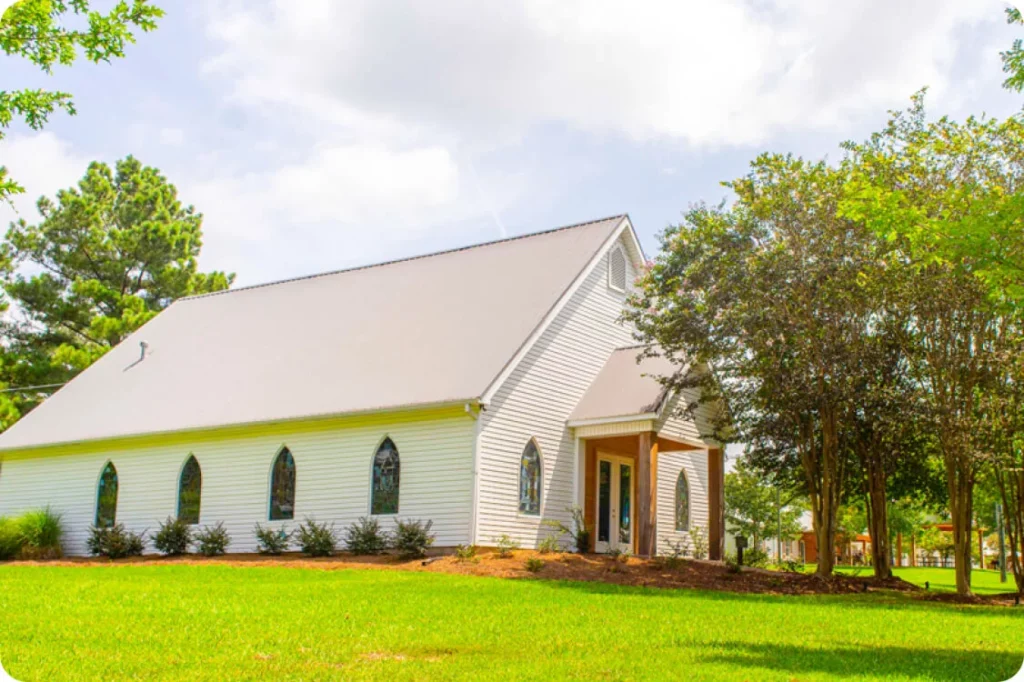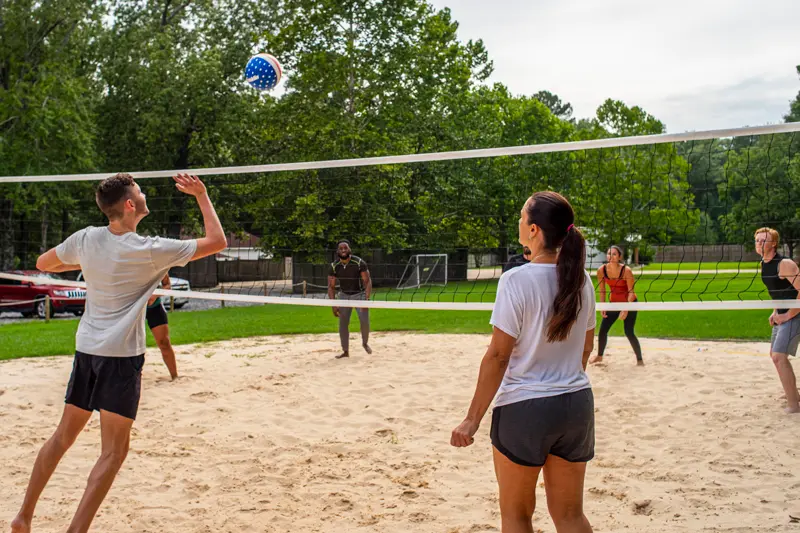Sometimes what we need in order to heal is right in our own backyard, literally. For many, being in nature is a go-to activity to decompress, pursue self-care, socialize, and build fitness. Yet going outside and spending time in nature are also part of many leading holistic addiction treatment programs. And for good reason: adventure therapy and other forms of outdoor therapy can leave a major impact on your long-term healing from addiction. But what makes these unique therapies so powerful within inpatient and outpatient addiction treatment?
Nature and Therapy: Why Does the Outdoors Make You Feel Good?
You’ve heard that the great outdoors can be good for the soul. It’s no wonder that many people spend their vacations visiting spectacular natural settings like the Grand Canyon, Hawaii, Coastal Maine, or Yellowstone. You may have cherished memories yourself of escaping to nature. There is actually a growing body of evidence that being outside brings a number of benefits for our health, including:
- Improved attention
- Lower stress
- Better mood
- Reduced risk of psychiatric disorders
- Increased empathy and cooperation
- Improvements in memory and attentional functioning
- Enhanced happiness and well-being
SOURCE: American Psychological Association
But you don’t have to spend days hiking in the remote wilderness of Montana or Wyoming to achieve these outcomes. Even a morning stroll in your local city park can bring about healthy improvements. And with increased awareness of nature’s profound, therapeutic impact on our overall health, nature-based therapy has found its place among the professional mental health and addiction treatment communities. That’s why, as an industry-leading holistic addiction treatment center, our team at Defining Wellness Centers utilizes adventure therapy alongside other experiential and evidence-based treatments to help you maintain lasting sobriety in your recovery journey.
What is Adventure Therapy?
Adventure therapy harnesses the powers of nature and the outdoors and constructively uses them to treat mental health disorders like trauma, anxiety, and depression, as well as substance use disorders. When you’re struggling with addiction especially, you often have limiting beliefs about yourself and your capabilities. After all, you’ve likely tried to break free from addiction on your own and failed. Adventure therapy can be particularly effective for this reason, as it challenges your self-limiting beliefs, helps you learn to take responsibility for your actions, and gives you the opportunity to step out of your comfort zone.
Often part of broad outdoor therapy programs, adventure therapy puts you in an unfamiliar environment. That environment may be totally natural, such as in the midst of a forest, or it may be contrived, such as a ropes course at an inpatient addiction treatment center. When participating in adventure therapy, you’re typically tasked to complete some kind of activity alongside others in a small group setting.
These action-based activities usually expose you to challenges that push you in unfamiliar ways, explains EcotherapyHeals.com, involving risk or the perception of risk. The fact that these activities are challenging is an important aspect of the experience, as it gives you the opportunity to learn how to work through difficult situations in a healthy way.
Common adventure therapy activities include:
- Canoeing and kayaking
- Mountain biking
- Hiking and backpacking
- Canyoneering
- Primitive skills development
- Whitewater rafting
- Rock climbing
- Snowshoeing
- Skiing
- Horseback riding
- Swimming
How Adventure Therapy Works in Practice
Adventure therapy activities are typically presented in a way where they seem impossible to overcome, yet are ultimately attainable, according to Evaluation and Program Planning. Whether it involves problem-solving skills or straightforward outdoor therapy activities, adventure therapy engages you in a way that helps you to master the challenge on your own. After the activity ends, your therapist may help you derive key takeaways from your experience that you can apply back into your treatment — and into your everyday life.
A real-world example of adventure therapy in practice, according to EcotherapyHeals.com, may look something like participating in rock climbing when you’re struggling with self-defeating behaviors or lacking in self-confidence. Likely you’re unfamiliar with how to rock climb at the beginning of the activity. But you’re taught the skills and then actually get to climb in a controlled, and importantly — inspiring and encouraging — environment. As a result of the experience, you realize you’re more capable than you thought possible. This kind of confidence boost can work wonders alongside other therapy modalities.
Outdoor Therapy Activities: The Impact of Adventure Therapy
Overall, adventure therapy aims to improve your psychological, physical, social, and spiritual well-being through experiential learning. Consequently, research has shown that adventure therapy is effective in treating a range of behavioral and mental health problems, according to Evaluation and Program Planning. Not only can such activities help heal these specific struggles, but outdoor therapeutic programs can also aid in your overall personal growth. Just take a look at some of the key benefits of adventure therapy:
- An opportunity for personal reflection and emotional processing
- Renewed perspective
- Interpersonal, teamwork, and problem-solving skills development
- Enhanced community
- Support and encouragement
- Reduced stress and increased calm
- Enhanced mood
- Improved health and physical fitness
- Strengthened resilience
- Increased self-esteem, self-efficacy, and self-confidence
- Improved adaptability and resourcefulness
- Improved ability to advocate for yourself
- Improved concentration and focus
- A growth mindset
- Greater self-awareness
- Improved ability to cope with negative feelings or impulsive behaviors
As part of a holistic treatment program, adventure therapy provides a unique departure from many of the traditional talk-based therapies. This healthy change of pace gives you the chance to grow through experiential, hands-on learning, applying many of the tools you may have discussed in other therapies. Add in the benefits of being outside mentioned earlier, and adventure therapy becomes a highly impactful component of your treatment plan.
How Adventure Therapy Helps Addiction Recovery
As you’re trying to stay sober, proactively practice relapse prevention, and achieve lasting recovery, how can adventure therapy help? Considering the benefits mentioned above, let’s take a look at a few important ways this method can empower you to stay healthy and substance-free long-term.
Adventure therapy …
Promotes Resilience
In the process of learning to no longer succumb to those nagging, self-limiting beliefs that were so easy to assume during your addiction, you discover through adventure therapy that you can tackle difficult situations and see them through. Not only does this give you confidence and a greater belief in yourself, you also can apply this newfound resilience when you encounter future addiction triggers and are tempted to return to your addictive substance of choice to cope. As a result, you continue to practice relapse prevention techniques and focus on your sobriety goals when challenges arise.
Enhances Teamwork Skills
Addiction in many ways can be an isolating experience. That’s why the teamwork skills you develop in adventure therapy can be particularly impactful to your long-term sobriety. Through the course of your adventure therapy activities, you often work alongside other participants. This teaches you valuable communication skills, as well as how to work well with others at solving problems. Your learned teamwork capabilities not only keep you focused on your recovery (especially in working with your support network), but they also help you to succeed in the real world.
Encourages Personal Growth
Within adventure therapy, you learn a number of skills, from the teamwork and resilience mentioned earlier to the ability to maintain self-confidence, adapt, and learn to cope with negative emotions in constructive ways. You also get to process the choices you’ve made along your journey and gain valuable perspective. All these experiences combine to help you grow into a more well-rounded person, which ultimately puts you in a better position to stay the course in your recovery.
Outdoor Therapy Activities at Defining Wellness Centers
In addition to adventure therapy, there are a number of other outdoor therapeutic programs that work well within holistic addiction treatment. Many of these we use as part of our experiential therapies here at our Mississippi Defining Wellness Centers. These including:
- Wilderness therapy – Truly immersing you in nature, wilderness therapy typically involves multi-day backpacking or camping trips in remote natural settings. During this time, you may participate in problem-solving challenges, adventure activities, and therapy alongside others in the group.
- Ecotherapy – Emphasizing the connection between humans and nature, ecotherapy focuses on helping to give back to our planet. Ecotherapy activities may include planting trees, forest bathing, or working in a community garden.
- Physical fitness program – In addition to our indoor fitness center, we offer a number of fitness activities you can enjoy outdoors on our beautiful campus, such as pickleball and yoga.
By combining experiential therapies like adventure therapy with evidence-based practices, we address you as a whole person in our inpatient and outpatient addiction treatment programs. To learn more about how we can help heal your mind, body, and spirit from addiction, contact our team today.









